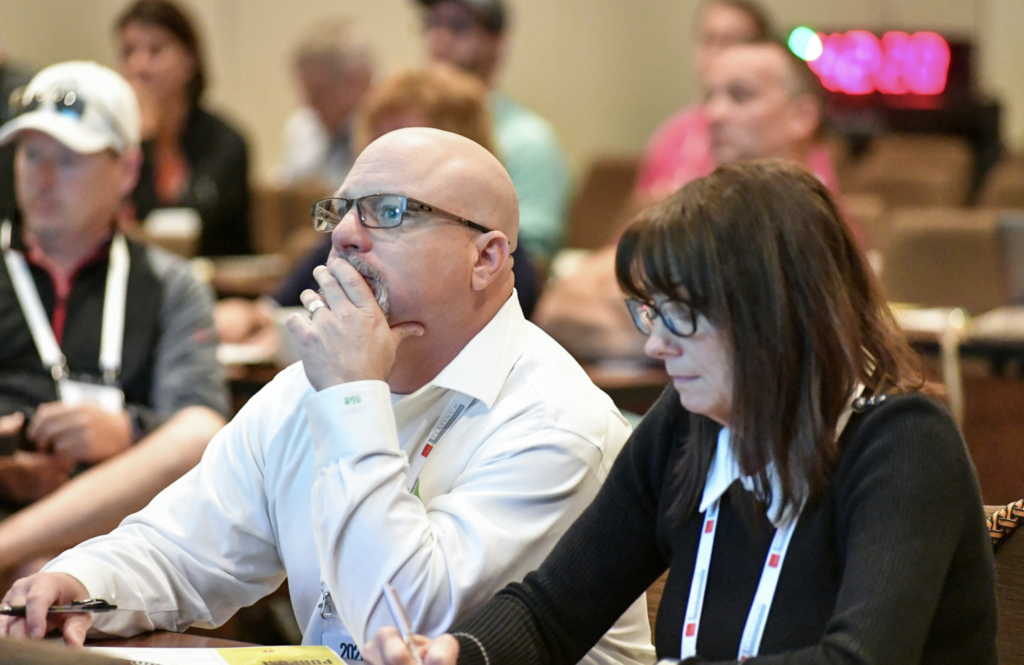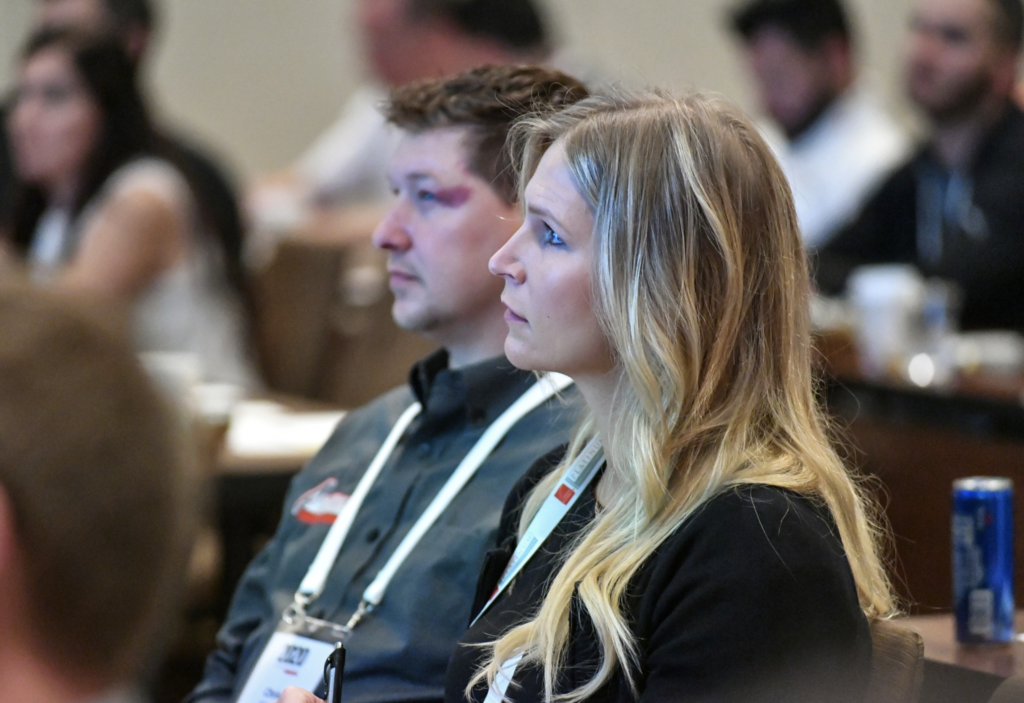
As an executive and consultant to some of the world’s most esteemed brands, Ryan Estis has enjoyed an insider’s view of what the world’s best companies do differently. During the Owens Corning Roofing Platinum Conference, March 9-11, 2020, in Marco Island, Florida, Ryan inspired Platinum members of the Owens Corning Roofing Contractor Network to consider their business in context with the “experience economy” driving today’s marketplace. He shared insights from global brands success that can be leveraged in local markets and offered advice on how stepping back to reflect and renew can drive an even higher level of performance.
Below are some highlights from the conversation with Ryan.
Q: What similarities do you see between running a roofing company and managing a global brand?
A: In 2020, the experience economy is driving both big brands and small businesses, including roofing companies. Today, your brand is no longer what you say it is, but how your customers define their experience with the brand. Small businesses are leveraging the strategies global companies use to create advantages in their local market and in their categories.
Q: Can you share an example of a small business applying global marketing strategies to gain an advantage?

A: Sure; big brands have learned that customers do not buy on price, but only default to price in the absence of value and a consistent, high-quality product. Starbucks is a good example of a little coffee shop that evolved into a global brand based on a consistent commitment to customer excellence. Although Starbucks serves a commodity product (coffee), its customers are willing to pay a significant premium for the consistent experience of quality. This concept of consistent excellence can be codified by any small business owner and leveraged as a key point of differentiation. I think it’s actually easier for small businesses to be remarkable than for their larger counterparts to be remarkable.
Q: How do you define a “remarkable business”?
A: Remarkable is an important word in the experience economy. It means, you’re worthy of being remarked upon. You are creating an experience that is so good, so consistent, and so valuable that you’ve created a sense of urgency where customers can’t wait to tell others about their experience with your business. Applying the experience model to business growth, success arrives from growing the business through referrals and relationships.
Q: What are some challenges when it comes to being remarkable?
A: Customers have higher service expectations today. Amazon and Alexa have created an expectation that service will be more urgent, more efficient and more responsive to customers’ needs. Yet, the high-tech approach doesn’t always allow for the human element and connectivity that drive customer excellence and distinguish businesses. Looking a customer in the eye is powerful and the in-home experience of working with a customer to present roofing options provides a powerful opportunity to differentiate. And of course, attitude is critical.
Q: How does attitude drive a contractor’s success?

A: Mindset is huge. Every day, contractors — and all of us — have a chance to choose how we will show up. The choice is much less about our external circumstances and more about our resolve; determining how we want to show up. How will we treat people? How will we navigate the problems that arise each day? Customers tend to remember how we react to a problem more than the problem itself. Problems are some of the best opportunities we have to deepen the relationship and build trust. When a problem arises, we have an opportunity to insert ourselves into the problem and do something remarkable that the customer will remember and tell others about. When something goes wrong and a contractor has an opportunity to over-deliver and show up even better than expected — that’s powerful.
Q: As a former ad executive, what are some practical ways contractors can be more creative?
A: Contractors need to put time on their calendars to work not just in their business but on their business. Schedule time to think about your business and keep that appointment like you would any other important commitment. Morning is my best time to read, journal and reflect. I don’t take phone calls or meetings before 10 a.m. — I call it the 10 o’clock rule. It’s about being intentional and setting aside time to stimulate creativity. Most people are in a constant “respond and react” mode versus being in an intentional mode.
I’m a huge fan of the digital detox. Scheduling two or three hours of white space — where you shut the phone or e-mail off for a few hours every week or two — should not shut down your business. It’s critical to be surrounded by team members who can lend support and allow you to renew. You simply cannot do it alone, so it’s important to hire smart and then invest in that talent. Culture is critical. Your business needs to be a place where people want to come to work.
Meditation and mindfulness are important personal practices for me, along with yoga. If you can get quiet and be mindful of the present moment, there is a treasure trove of creative inspiration just waiting to be tapped.
Risk-taking and a curious mindset are also critical. At a time of such rapid change, it is critical that you learn how to become comfortable being uncomfortable. Try to stay in a state of continuous learning and reinvention. Ask what you’ve learned lately and make it a point to be curious.
Q: Change isn’t always easy. How can contractors be more receptive to change?
A: Think about what your future state might be if you make the desired change. Will you be healthier in five years? What other positive benefits of making a change will you reap? And think about the consequences of not making the change – what could happen if you don’t change?
Q: As a former ad executive, what headline would you write to inspire contractors in 2020?
“Be prepared for impact.” That simply means it’s important to develop an action plan that you can deploy. It’s all about creating momentum that drives you toward your dreams.



Be the first to comment on "Industry Q&A: Ryan Estis Shares Business Insights Tailored to Roofing Contractors"